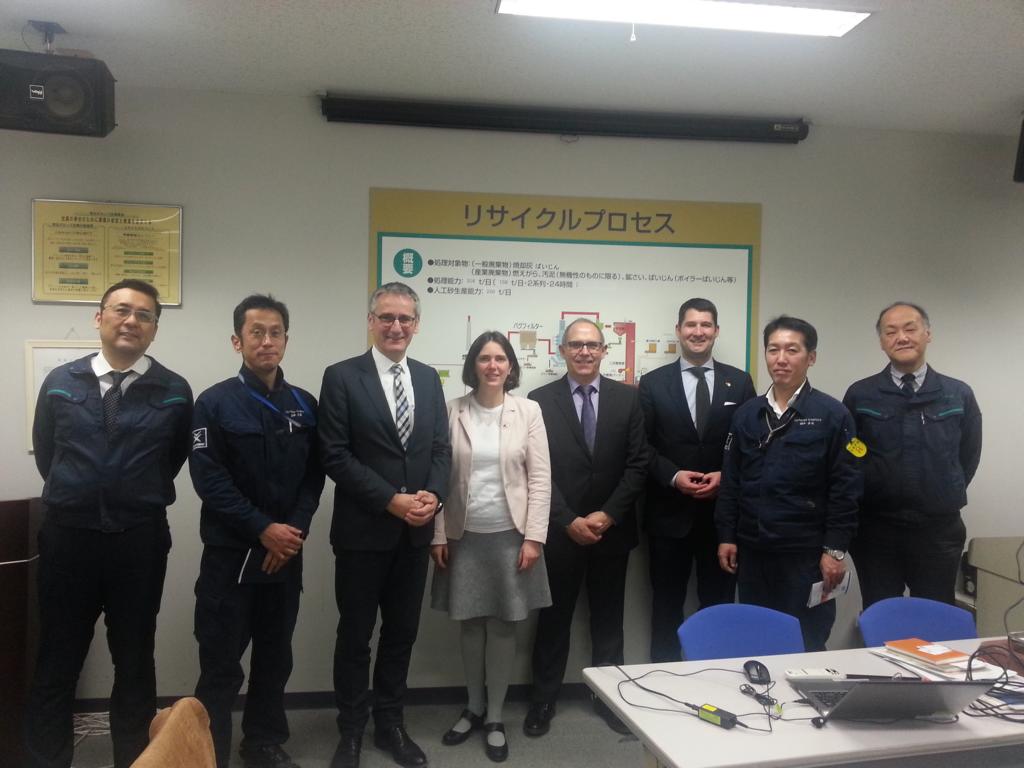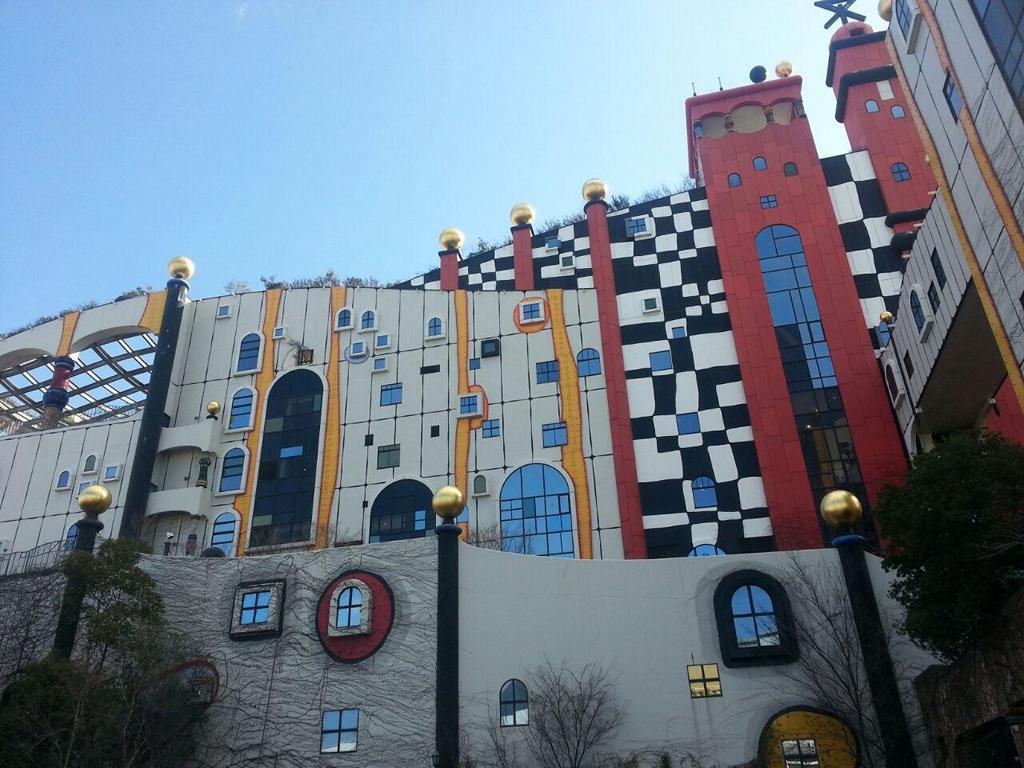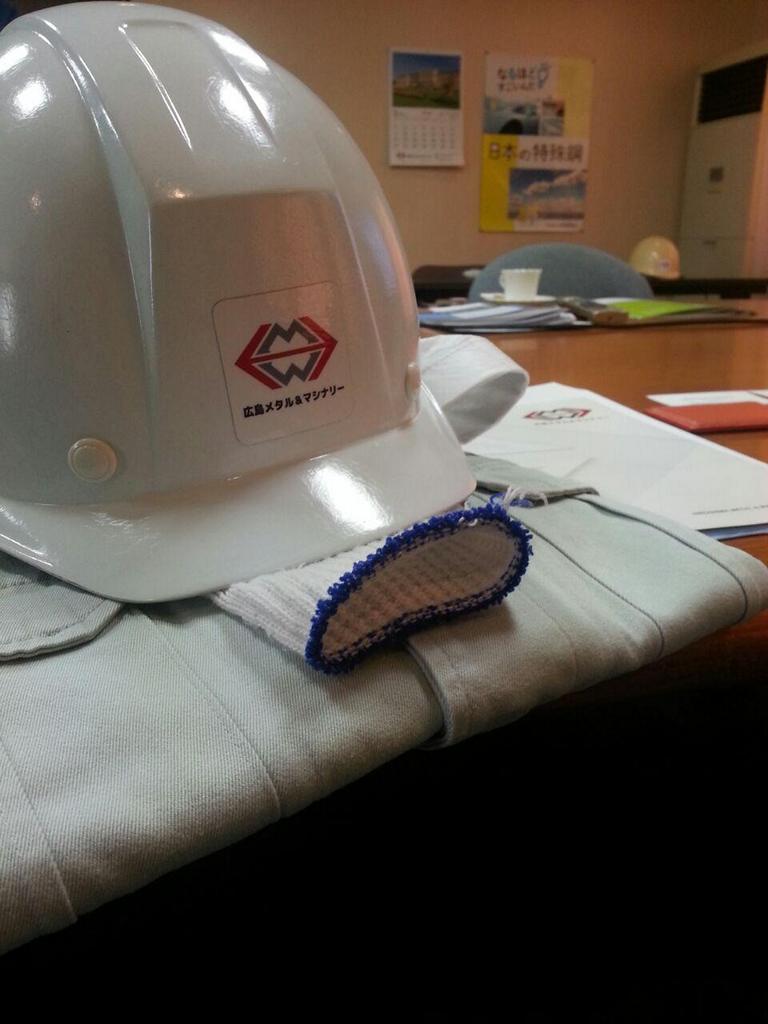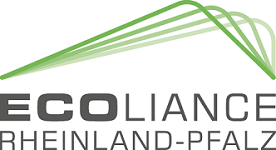Circular Economy in the Far East – a different way of managing waste
Ecoliance Rheinland-Pfalz e.V. informs itself about waste management and digitisation in Japan
Tokyo in February 2020, Corona is already in the news tickers, but not yet the dominant topic. The winter in the land of the rising sun was much too warm and too dry. Spring can be felt everywhere. A business delegation from Rhineland-Palatinate is also bringing with them a sense of optimism and a good portion of hope for the development of good business contacts. Around 50 entrepreneurs, members of parliament and representatives of the Ministry of Economic Affairs under the leadership of the responsible minister Dr. Volker Wissing spent three months meticulously preparing for the trip to Japan. Ecoliance members Werner Zimmermann, managing director of Rhenocoll and chairman of the Rhineland-Palatinate environmental technology network, as well as Matthias and Markus Kuhl, managing directors of Premosys, are also part of the delegation.
On the very first evening, Dr. Lucas Witoslawski from the Chamber of Foreign Trade will explain the Japanese economic model, which is called Abenomics in reference to the long-time Prime Minister Shinzo Abe. Unlike Germany, Japan is prepared to accept a high level of national debt in order to generate strong economic impulses. As in Germany, demographic development, the digitization of society and the economy and the use of resources in the form of a circular economy are becoming increasingly important. Good conditions for comparing where the two industrial nations stand.
Holistic approaches are highly valued by the Japanese technology giant Hitachi, whose headquarters was the first port of call for the travel group. Here, there is no fear of large amounts of data or encroachment on personal rights if the goal is the sustainable improvement of each individual's life. The increasing sale of ginger or cold remedies in a neighbourhood can thus become an indicator for the prediction of cold waves. Creativity and the unbiased play with data determine the presentations of the company.

A souvenir photo shows the visibly impressed Matthias Kuhl and Tamara Breitbach with the Hitachi robot.
As in Germany, waste recycling rarely takes place in the city centre. But there is a significant difference. Japan is located on an island. So the question of space and location is a more pressing one for any economic activity than in Germany. This became particularly clear during a visit to the ash recycling plant of Tsuneishi Kamtechs Corporation in Saitama. In this plant, ash from the large-scale waste incineration established in Japan is fed to a second incineration at about 1200 degrees Celsius to destroy any organic substances and toxins. The recycled product is sold as ARC sand and is used for surface compaction. According to General Manager Tatsuya Kawajiri, this has two major advantages: the material thus reduced absorbs 20 times more water than normal soil and can provide sensible protection against puddle formation during rainy seasons. In addition, it no longer allows organic substances to grow. The subject of phosphorus recovery during the incineration of sewage sludge, which is a hotly debated topic in Germany, does not play a role in Japan.

The Ecoliance delegation at the obligatory group photo with the employees of Tsuneishi Kamtechs Corporation.
Osaka, the commercial centre of Japan, had the facades of a waste incineration plant and the municipal sewage sludge incinerator designed by Friedrich Hundertwasser in the 2000s. Both plants were built directly on the city limits. The residues from waste and sewage sludge incineration are dumped into the sea in Osaka and are used to build a new artificial island off the coast.

The Hundertwasser design conceals the purpose of the installation. Osaka burns garbage here on a grand scale.
At the end of the trip, Werner Zimmermann, Chairman of Ecoliance Rheinland-Pfalz e.V., and Tamara Breitbach also visited the Hiroshima Environmental Business Council partner network in Hiroshima. The cluster brings together all the companies involved in environmental technology in a region dominated by the automotive, steel and shipbuilding industries. Among the current 200 or so members was Hiroshima Metal und Machinery Co Ltd, which recycles old steel and sells it regionally, for example to Korea and China. Noboyuki Kataoka, chief engineer, gave a tour of the plant. Here, the technological change and the profound changes that come with it can be felt with hands. Similar to Germany, Japan is producing its steel too expensively and cannot compete with the competition from China, which is close by. So the company has specialized in steel recycling. The trading company Santai Sangyo Co. Ltd. with its managing director Yoshiaki Fukunaga sells various basic chemical products. Approaches for further cooperation were respectfully addressed. For example, there is great interest in the exchange of environmental technologies that combine resource efficiency and digitalisation.

Protective clothing is required to visit the steel recycling plant at Hiroshima Metal and Machinery Co Ltd.
